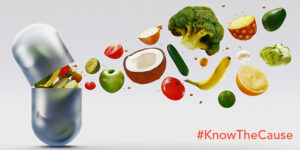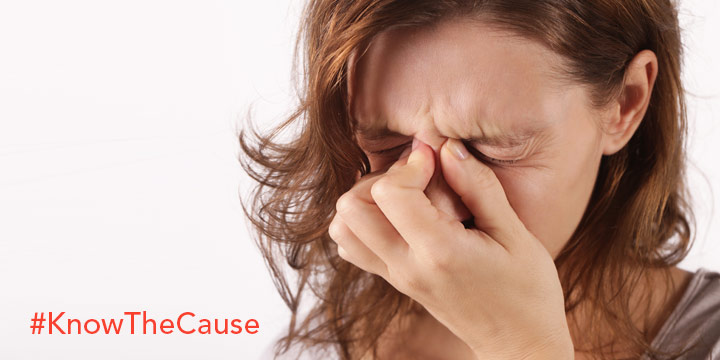

Sinusitis or rhinitis is a very common problem which is seen in about 20% of the population over the course of their lifetime, (1). Sinus problems can cause excess mucous production, pain, problems in breathing/ sleeping/ concentrating, and chronic fatigue (1). Some researchers believe that a majority of sinus problems are due to fungal exposure. Ponikau reported that 94 out of 101 (93%) consecutive chronic rhinosinusitis patients were diagnosed with allergic fungal sinusitis (2).
Fungal sinusitis can take many forms non invasive forms such as 1) saprophytic fungal infection, 2) fungus ball growth and 3) (most common) allergic fungal rhinosinusitis. Invasive forms of rhinosinusitis include: 1) acute invasive fungal rhinosinusitis, 2) chronic invasive fungal rhinosinustis, and 3) chronic granulomatous invasive fungal rhinosinusitis (3). Saprophytic growth is often asymptomatic. Fungal balls are treated primarily with endoscopic surgery, Allergic fungal sinusitis is treated with avoidance of mold/water damage, oral and topical steroid treatment, antifungal drugs, fungal immunotherapy and surgery of polyps (3).
Invasive sinusitis can be life threatening and may involve complex management including strong antifungal drugs, surgery, and correction of pre-existing conditions such as neutropenia or malnutrition (3). Chronic invasive fungal sinusitis is treated with antifungals and surgical debridement (3).
Avoidance of Indoor Mold/ Water Problems can significantly reduce risk of rhinosinusitis. A meta-analysis of 31 published studies reported that presence of visible mold was associated with an 82% increased risk of rhinitis (relative risk 1.81, 95% Confidence Interval 1.56-2.12) (4).
An interesting 2009 study reported on a group of 79 consecutive patients with documented indoor mold exposure and rhinosinusitis (5). All of the patients had severe chronic fatigue. Deficiency of thyroid hormones were noted in 64 of 79 patients (81%) and deficiency of growth hormone was seen in 40 of 79 patients (51%) (5). Following treatment in a multi-faceted program of reduced indoor mold exposure, antifungal drugs, and replacement of thyroid and growth hormones resulted in major improvements in 41 out 45 (93%) patients treated (5).
Ponikau JU, Sherris DA, Kern EB, Homburger HA, Frigas E, Gaffey TA, et al. The diagnosis and incidence of allergic fungal sinusitis. Mayo Clin Proc. 1999;74(9):877-84.
Doug Kaufmann has written many books that cover a full range or health issues. Find out which of his books best suits you by clicking the button below.
Doug Kaufmann developed his diet after years studying the clinical effects of pathogenic fungi on the body. Fungi and yeasts can become parasitic organisms on and inside our body, causing health problems that can be difficult to diagnose. Learn more about the Kaufmann Diet, change your life and know the cause.
We encourage all visitors to this site to take some time and study these technical articles prior to initiating lifestyle changes, including dietary changes and to do so with their physician’s awareness and approval. The articles posted in this link are scientific and with few exceptions are taken from medical journals familiar to healthcare workers.
Looking for help assembling antifungal Kaufmann Diet approved recipes for breakfast, lunch or dinner? We have several videos, books and recipe write ups here on Know the Cause that will help your health journey. The recipes in this section are so good, you’ll feel like you’re indulging. No sacrifice needed! Enjoy.
© 2024 Mediatriton Inc. All Rights Reserved • Website by Skynet Solutions